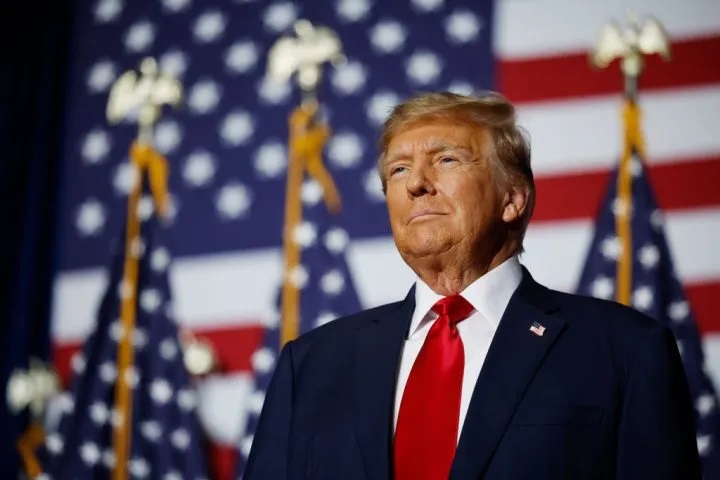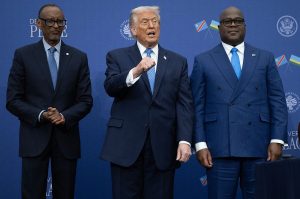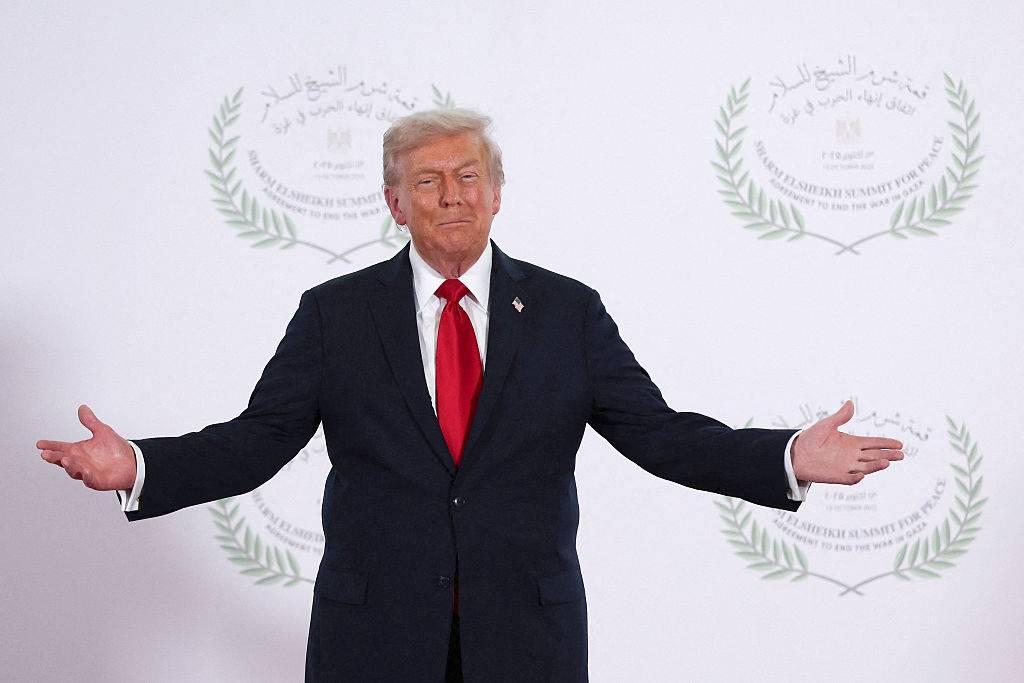Over the past few days it has become clear that Donald Trump’s return to the presidency has gone from being an outlier to an increasing likelihood. His landslide in the Iowa caucus only confirms this further.
As the first term of Joe Biden’s presidency comes to a close, one of his achievements is no doubt the increased coordination amongst leading democracies when it comes to dealing with the challenge that China presents. Under Biden’s tenure the G7 has agreed to collectively fund an alternative to Beijing’s Belt and Road Initiative and work on de-risking their supply chains away from the country. Meanwhile, in the past year, the US and its partners have placed unprecedented restrictions on the export of semiconductor chips to China.
Some speculate that Trump might seek to negotiate with Xi, as he attempted to with Kim Jong-Un
There remains contention over the extent to which countries need to reduce their dependence on China. But during his presidency, Biden has managed to bring reluctant partners onboard with his policies. The impact of Trump’s return on a coordinated multinational China policy, however, has yet to be priced in. Without giving any clear signals of his intentions may be, Trump’s return to the White House runs the risk of being disruptive to the progress made under Biden.
For as long as Trump refuses to clarify what his second term China policy might look like, his reelection could prove a deterrent to further Western convergence on China policy. This would be a gift to Beijing.
After all, many European leaders still remember Trump’s first term in the White House. His administration promoted “America First” and saw him pull the US out of the World Health Organization, slash funding for the United Nations and threaten to withdraw from NATO. Trump’s China policy was, to say the least, inconsistent. On the one hand he introduced tariffs on Chinese goods and demanded that partners strip Huawei out of their 5G networks. But on the other, he voiced admiration for Xi Jinping’s dictatorship and signed the first phase of a new trade agreement with China.
Given this approach it is little surprise that talk of “strategic autonomy” has returned in Europe. It was the desire for this independence that led European leaders to sign the EU-China investment agreement in 2020. Chinese sanctions on European parliamentarians the following year put ratification of the treaty on ice, but fresh European elections this spring and Trump back in the White House could give it renewed impetus.
The other side of the Channel faces a similar headache when it comes to Trump’s return. After long negotiations, last year the UK managed to join the Comprehensive and Progressive Agreement for Trans-Pacific Partnership (CPTPP) — from which Trump pulled the US on his first day in office. Without the US to act as a potential blocker within the partnership, China has applied for membership of this twelve-country strong trade pact. Many Beijing-watchers in the UK rightly conclude that this would offer Xi a free trade agreement with Britain through the back door and lead to deeper economic dependency on China. UK officials are painfully aware that a Trump presidency would complicate any British parliamentary opposition and a potential UK veto of Chinese membership.
In his New Year’s message several weeks ago, Xi once again emphasized that “reunification” between Taiwan and China was a “historic inevitability.” But last weekend, the island reelected the pro-sovereignty Democratic Progressive Party for a historic third presidential term. Coupled with heightened military maneuvers by the Chinese People’s Liberation Army (PLA) in the Taiwan Strait, it seems likely that Taiwan will continue to be a significant issue of concern for the next American president.
Biden has consistently reiterated the US’s historic support for maintaining the status quo in the Taiwan Strait and last year announced an arms package of $345 million for the island. The question of where Trump would land if Taiwan came under an all-out assault or even a siege by the PLA remains unclear. Some speculate that Trump might seek to negotiate with Xi, as he attempted to with Kim Jong-Un in his first term when he tried to persuade North Korea to give up its nuclear weapons.
Such an approach might calm the fears of European leaders who fear being dragged into a US-China conflict. But it would be ruinous for the global economy and the regional balance of power — not to mention democracy in the region more generally.
Discussion of a potential Trump response to a Chinese invasion of Taiwan speaks to a larger issue: the unpredictability of his potential second term as president. Were he to return to the White House, there is a possibility some European countries would adopt a softer line towards China as they seek to hedge their bets in a rapidly changing arena.
The solution to this is for Trump and the Republican Party to offer clarity in the coming year on what his second term would mean for America’s China policy. If he has any sense, this should include maintaining the US’s security commitments to Taiwan and signaling continued coordination with key European partners. A return of serious, familiar officials who worked on China policy in Trump’s previous administration, such as the former deputy national security advisor Matt Pottinger, would go some way to putting foreign allies at ease and help governments build ties with a possible incoming administration.
There remain 293 days until the presidential election. Trump and his allies should make clarifying his probable China policy a priority, build upon Biden’s collaborative approach with G7 partners and address their outstanding concerns.
This article was originally published on The Spectator’s UK website.


























Leave a Reply